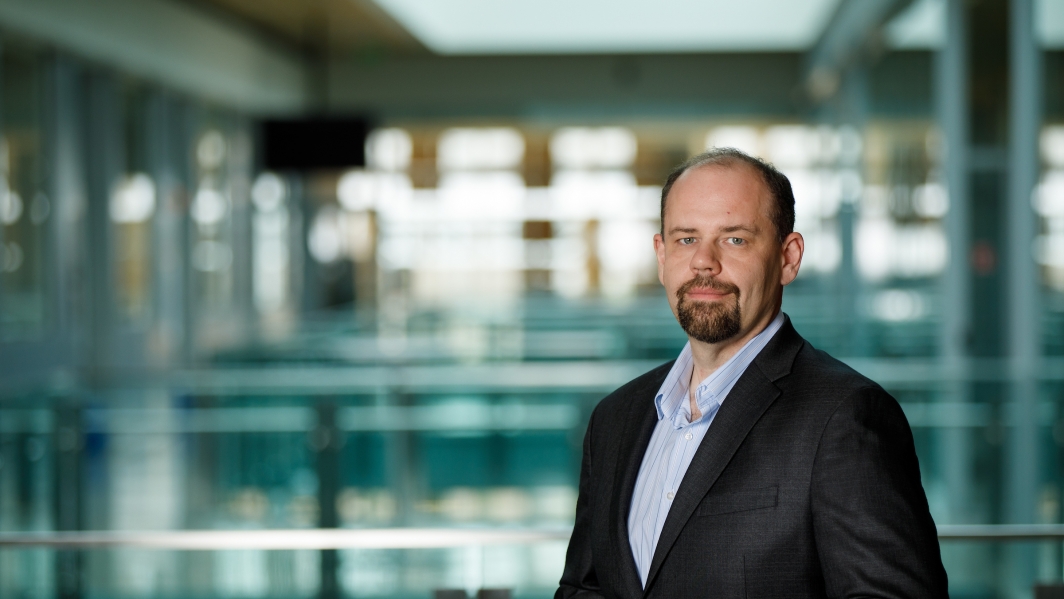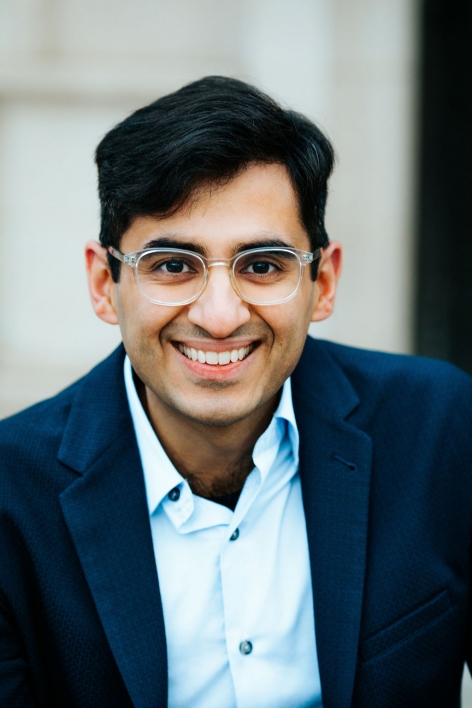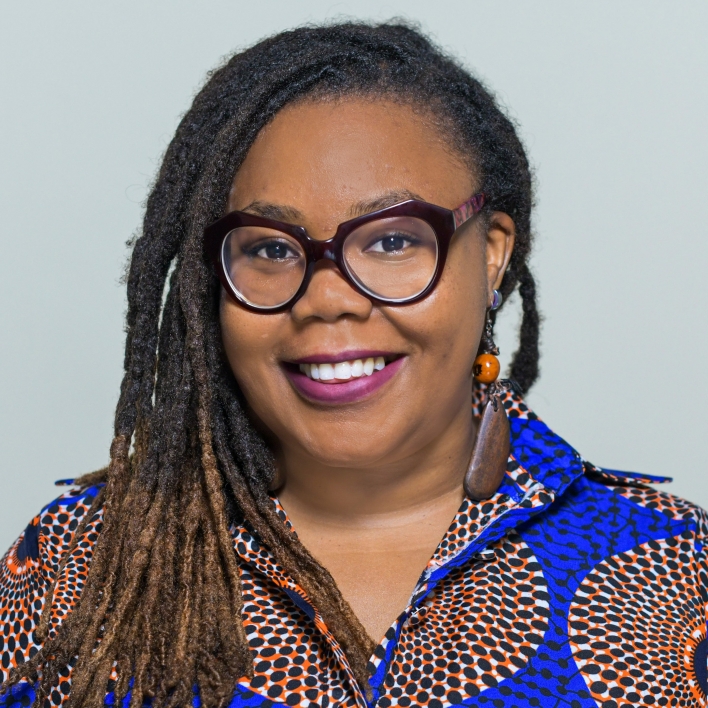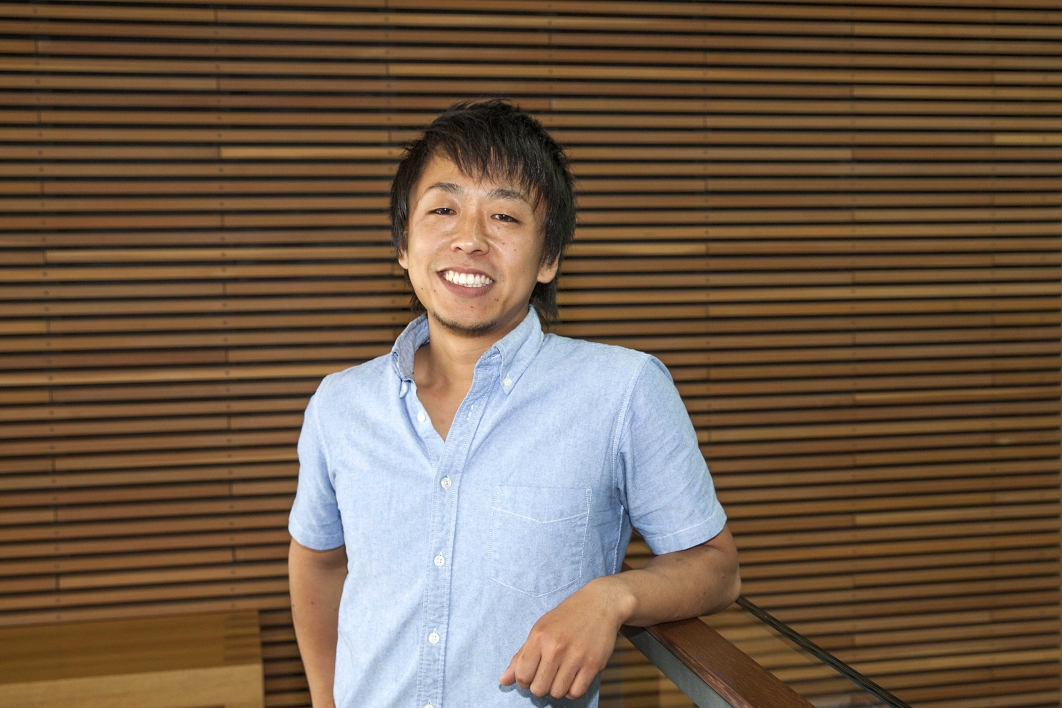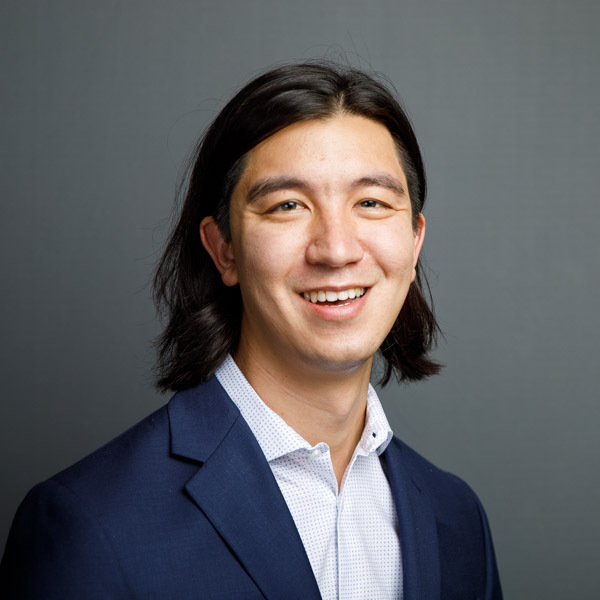The Biodesign Institute expands its scientific reach with 5 new faculty
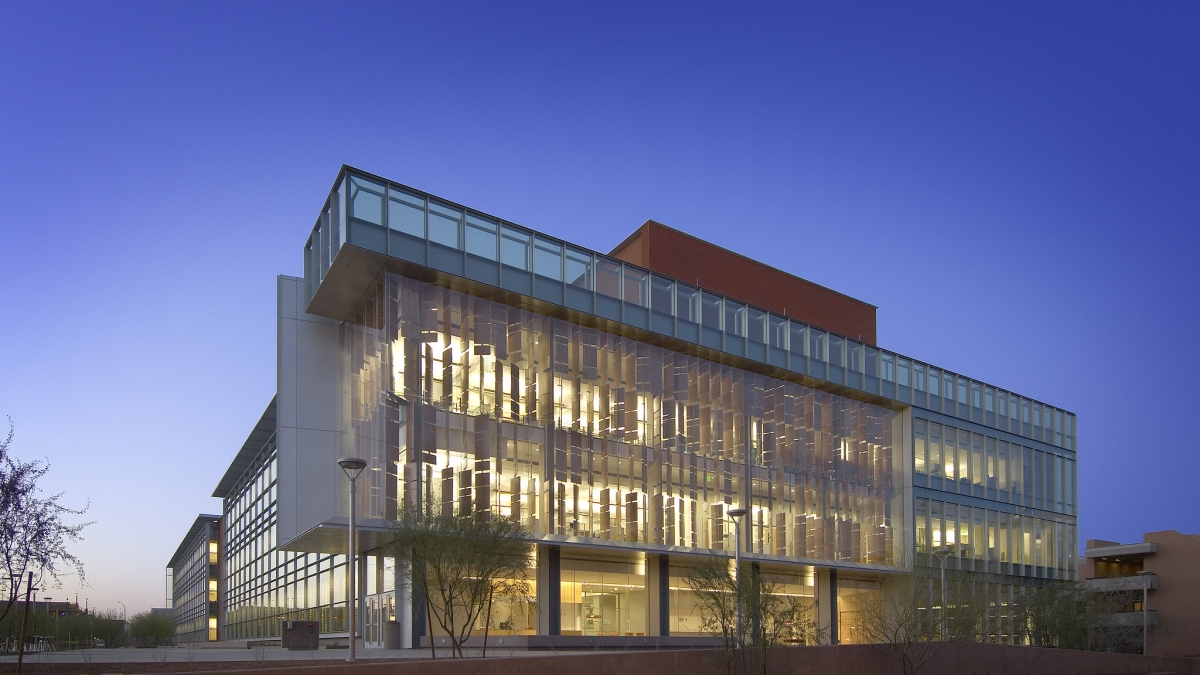
The Biodesign Institute at Arizona State University welcomes new faculty members to its Centers for Bioelectronics and Biosensors; Mechanisms of Evolution; Fundamental and Applied Microbiomics; Health Through Microbiomes; and Biocomputing, Security and Society.
The Biodesign Institute at Arizona State University welcomes five new faculty members, beginning this fall. The incoming researchers, all outstanding scientists in their respective fields, will further extend the already broad reach of the institute’s portfolio, which encompasses human health, national security and environmental sustainability.
Joshua Hihath will be the new director of the Biodesign Center for Bioelectronics and Biosensors. He will replace N.J. Tao, whose innovative work had raised the center to one of international prominence in the field of nanotechnology.
Joshua Hihath
In addition to his appointment at the Biodesign Institute, Hihath is a professor with the School of Electrical, Computer, and Energy Engineering at ASU. Previously, he was a professor and vice chair for undergraduate studies in the Department of Electrical and Computer Engineering at the University of California Davis, having earned his PhD in electrical engineering from ASU in 2008.
Hihath has pursued research at the intersection of engineering, chemistry, biology and physics, and focuses on understanding the electrical and mechanical properties of nanoscale and molecular systems for applications in electronics, sensing and health care.
“I'm excited to return to the Biodesign Institute. ASU has an expansive, dynamic and highly interdisciplinary research environment that spans engineering and the physical, chemical and health sciences,” Hihath says.
“I look forward to a variety of new collaborations aimed at harnessing the unique electronic properties of molecules for new applications in electronics, diagnostics, sensing and health care.”
Navish Wadhwa has joined the Biodesign Center for Mechanisms of Evolution. He was trained as an engineer and physicist but has long been preoccupied with biological problems as well. His eclectic academic background includes an undergraduate degree in mechanical engineering (IIT Delhi), MS in engineering mechanics (Virginia Tech), and a PhD in physics (Technical University of Denmark).
Navish Wadhwa
His postdoctoral research brought him to Harvard’s Molecular and Cellular Biology Department, where his love for biophysics was solidified.
His work has focused in part on how physical interactions enable or constrain the ways biological organisms move and interact with each other and their surroundings. His research into bacterial motility, guided by tiny rotary motors composed of distinct protein components, is one example. He also holds a position as assistant professor with ASU's Department of Physics and Center for Biological Physics.
“I was attracted to Biodesign due to its emphasis on interdisciplinary research and an exceptional group of people, both in scientific and research support roles,” Wadhwa says. “Altogether, Biodesign has created a fantastic environment to do science and I look forward to taking advantage of everything it has to offer as I launch my independent research career.”
Nsa Dada begins her new research position with the Biodesign Center for Fundamental and Applied Microbiomics.
She is the founder and lead of the Mosquito Microbiome Consortium, a collaborative initiative for the advancement of mosquito microbiome research. She is also a global health research consultant for institutions like the World Health Organization and Pan-African Mosquito Control Association. She is also the first black faculty member appointed to ASU's School of Life Sciences, where she is assistant professor.
Working within the global health sphere, she has led or been involved in research at the intersection of the biology, evolution, ecology/microbial ecology, and control of parasites and disease vectors at leading research and public health institutions around the world, including the U.S. Centers for Disease Control and Prevention, where she was a resident American Society for Microbiology Postdoctoral Fellow, and subsequent research fellow.
Nsa Dada
Her research efforts are now largely concentrated on how mosquito-microbe interactions shape mosquito biology and evolutionary responses to changes in their habitats. She currently leads a pioneering and award-winning research program that is aimed at understanding how microbes may contribute to the development of insecticide resistance in mosquito vector populations. She is a strong proponent of equitable 'Global North-South' research collaborations, and as such fosters several collaborative and research exchange initiatives between different institutions around the world.
Dada earned her BSc degree in zoology from the University of Calabar, Nigeria, and her MSc degree in biology and control of parasites and disease vectors from the Liverpool School of Tropical Medicine, Liverpool, England. She pursued a multidisciplinary doctoral research program at the Norwegian University of Life Sciences, Aas, Norway, and earned a PhD degree in microbiology — focusing on mosquito-microbe interactions.
"I joined Biodesign for its focus on finding solutions to global health challenges through research; an essence that encompasses what I do as a scientist. Being a part of Biodesign will allow me to explore an intersection of different life science disciplines (vector biology, molecular biology, and microbial ecology) that are usually explored independently. It especially provides an adequate platform for answering questions about the biology and behavior of disease vectors from the perspective of their association with microbes. It is also important for me to be in a community of scientists with similar research interests, and I look forward to interacting and collaborating with ASU colleagues."
The newly established Biodesign Center for Health Through Microbiomes, under the direction of Rosa Krajmalnik-Brown, welcomes its first new hire. Taichi Suzuki is an evolutionary biologist interested in the role of the microbiome in the health and fitness of animals, including humans.
“My research aims to build a comprehensive picture of host-microbial coevolution in animals that harbor complex microbial communities, ranging from genes to organismal biology to macro-evolutionary patterns,” Suzuki says.
Suzuki comes to ASU via the Max Planck Institute for Developmental Biology, Germany, where he has been a postdoctoral research associate in the Department of Microbiome Sciences since 2018. His research involves the identification of common genes that mediate host-microbial interactions across populations and species of mammals. Despite an existing body of research on the human gut microbiome, the microbial composition of such communities within wild, non-human populations remains a largely blank slate.
Using populations of wild house mice, Suzuki has explored the complex roles of symbiotic microbial communities in shaping host ecology and evolution. Research into the beneficial effects of the mammalian microbiome in natural populations has deep implications for the study of human health.
Taichi Suzuki
Joshua Daymude joins the Biodesign Center for Biocomputing, Security and Society and shares an appointment with ASU’s School of Computing and Augmented Intelligence. He completed his PhD in 2021 at the School of Computing, Informatics, and Decision Systems Engineering (CIDSE) at ASU. Prior to his professorship, he was a Mistletoe Research Fellow at the Momental Foundation, a three-time ARCS Foundation Johnston Endowment Scholar and a CIDSE Dean's Fellow.
Joshua Daymude
Daymude’s wide-ranging research connects distributed computing theory to collective and emergent behavior. His work involves areas of computer science such as distributed computing, stochastic processes, swarm intelligence and bio-inspired algorithms. His interdisciplinary approach encompasses theoretical immunology, microbiomic ecology, active matter physics, dynamic networks and programmable matter systems.
The research will explore the potential of distributed computing theory to “help solve unanswered questions about distributed systems in biology and society,” Daymude says.
“The Biodesign Institute offers a perfect interdisciplinary environment to pursue this research, where I can learn from and lend my expertise to biological and social research areas outside of computer science."
More Science and technology
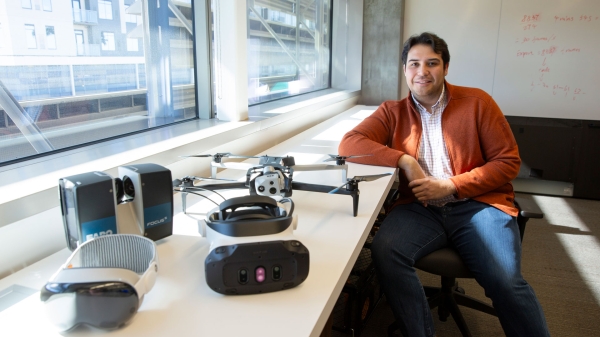
Teaching construction realities with virtual environments
Visiting a construction site is a valuable learning opportunity for students who want to one day work in the industry.…
ASU, Mexico partner to build next generation of chipmakers, drive semiconductor innovation
Thousands of college students in Mexico will soon have the opportunity to enroll in Arizona State University’s new, free online…
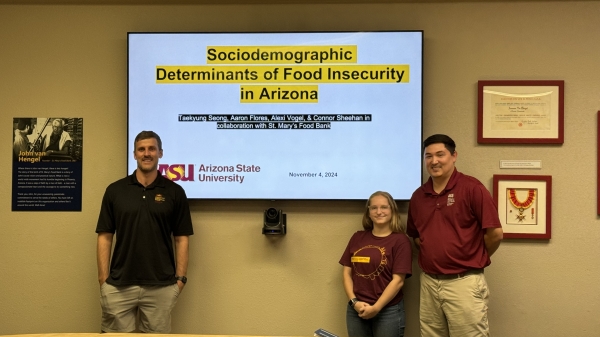
ASU, St. Mary’s Food Bank partner to tackle food insecurity in Arizona
Arizona State University and St. Mary’s Food Bank (SMFB) have joined forces to create an interactive data dashboard that tracks…
